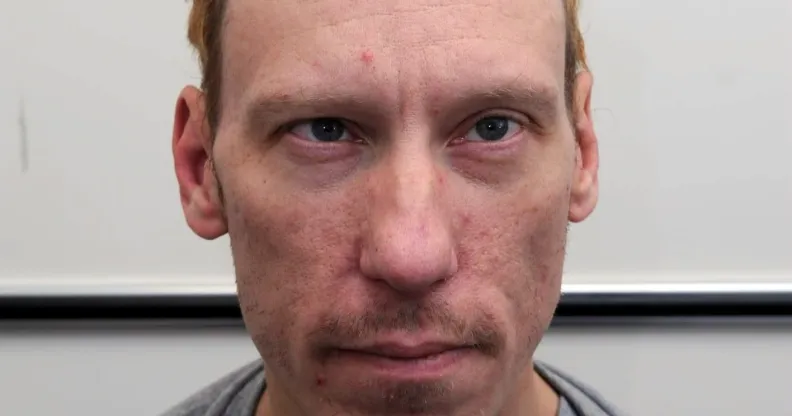Police homophobia ‘ruled out’ in inquest into victims of Grindr killer Stephen Port

Stephen Port killed four young gay men between June 2014 and September 2015.(Metropolitan Police)
Homophobia within the police has been ruled as an issue in the ongoing inquests of serial killer Stephen Port’s victims.
Port murdered at least four young men – Anthony Walgate, Gabriel Kovaria, Daniel Whitworth and Jack Taylor – by plying the victims with the drug GHB and disguising their murders as overdoses. An inquest into the investigation of the deaths has questioned whether Port’s horrific killing spree could have been stopped earlier should Metropolitan Police officers have acted differently.
In November, the inquest heard damning accusations that Met officers were guilty of “institutional homophobia” after they were “unwilling to engage” with a friend of one of the victims and dismissed evidence that potentially could have linked the deaths.
However, on Thursday (2 December), coroner Sarah Munro QC told the jury that they could not consider homophobia and discrimination from officers as a contributing factor in the deaths of Port’s victims.
“I direct that you cannot find that prejudice or homophobia or discrimination on the part of the police made any contribution to the deaths,” she told the jury, the Independent reported.
Munro continued: “I have ruled as a matter of law those are matters on which you may not express any views.”
She directed the jury to only confirm basic facts about the victims like who the individual was as well as when, where and how they died. Munro told the jury to only make a “short-form” conclusion of unlawful killing for each victim’s death.
She warned the jury that they should fairly assess the officers involved in the investigations that followed the death of Walgate, Stephen Port’s first victim, and should avoid the dangers of “hindsight”.
“You will need to consider whether or not in your view certain features of the three investigations that followed on the discovery of each of the bodies of Anthony, Gabriel and Daniel contributed to the deaths of Port’s subsequent victims,” she said.
But she said the jury could look at how the police engaged with the LGBT+ community and whether or not officers could have done more to investigate the links between the deaths.
The police’s engagement with London’s LGBT+ community and willingness to engage with evidence provided by loved ones of the victims has been widely criticised during the inquest.
The jury heard during a 4 November hearing that a Met detective told Whitworth’s stepmother that GHB was a “drug used in gay circles”. He also told her to ask her stepson’s boyfriend about it as “they know about this stuff”.
Mandy Whitworth said she felt the statement was “discriminatory” as she believed the “police made an assumption about the gay community”.
John Pape, a friend of Kovari, said during the inquest that he tried to help detectives by providing information he thought might link the deaths. However, he said police were “unwilling to engage” with him and didn’t seem “curious” about the information he had.
Pape also slammed any notions that failings in the police investigation were linked to funding issues and “emotional strain” within the force.
He told jurors that he thought “grieving families”, “boyfriends” and “friends” had been “trying to raise the alarm” before the police were “willing to acknowledge that the deaths” of Stephen Port’s victims were “suspicious”. As such, he believed “it can’t be a funding issue”.
“The only thing that makes any sense of how disturbingly incompetent this investigation was is prejudice, conscious or unconscious,” Pape said. “And in my opinion, if this means the lives and deaths of young gay and bi men aren’t treated with significance and respect, I think that amounts to institutional homophobia.”

